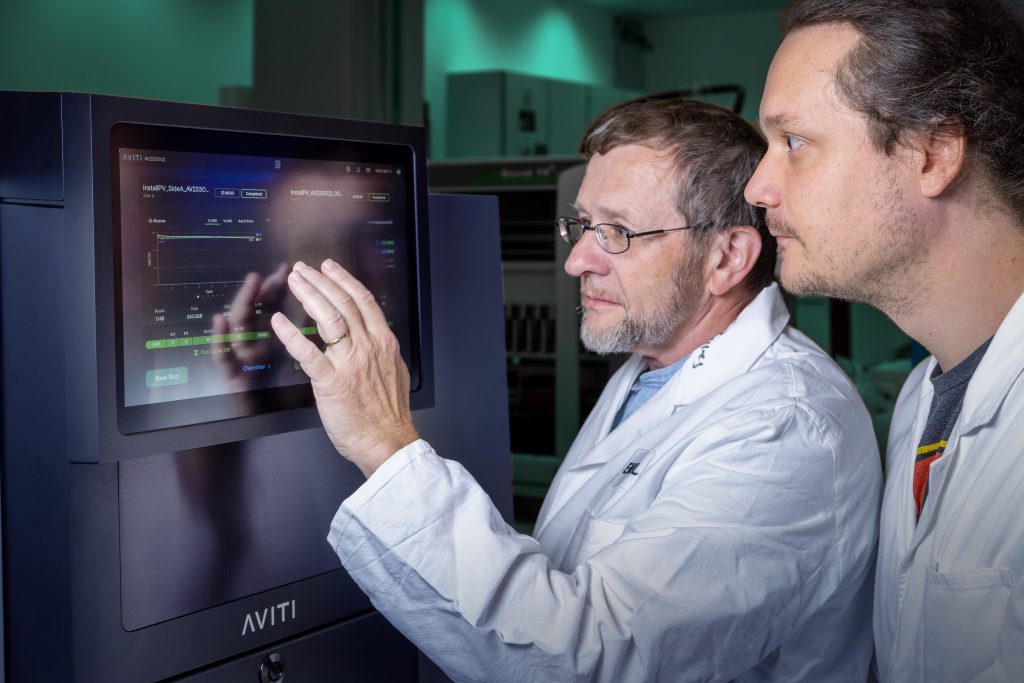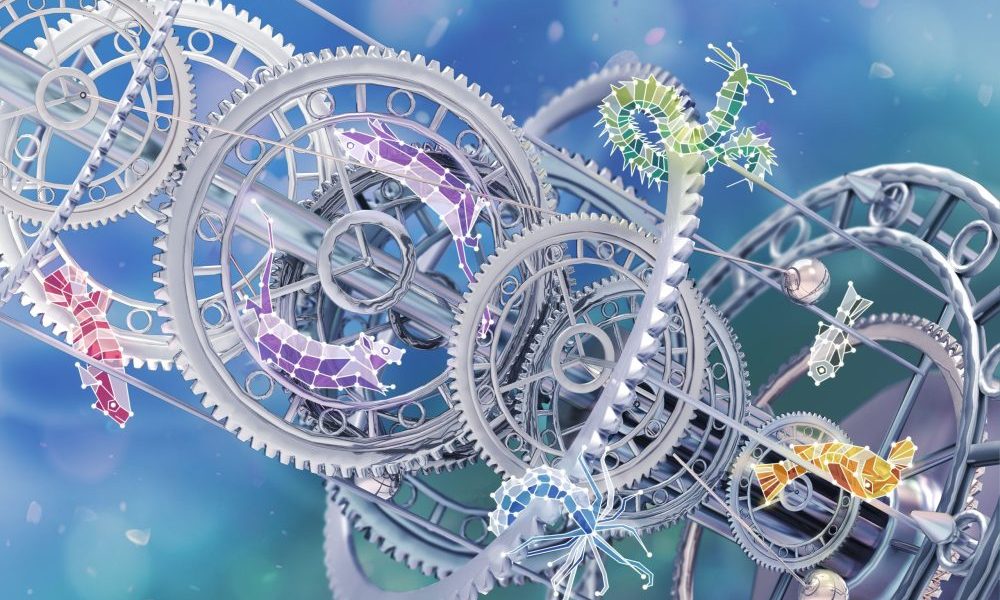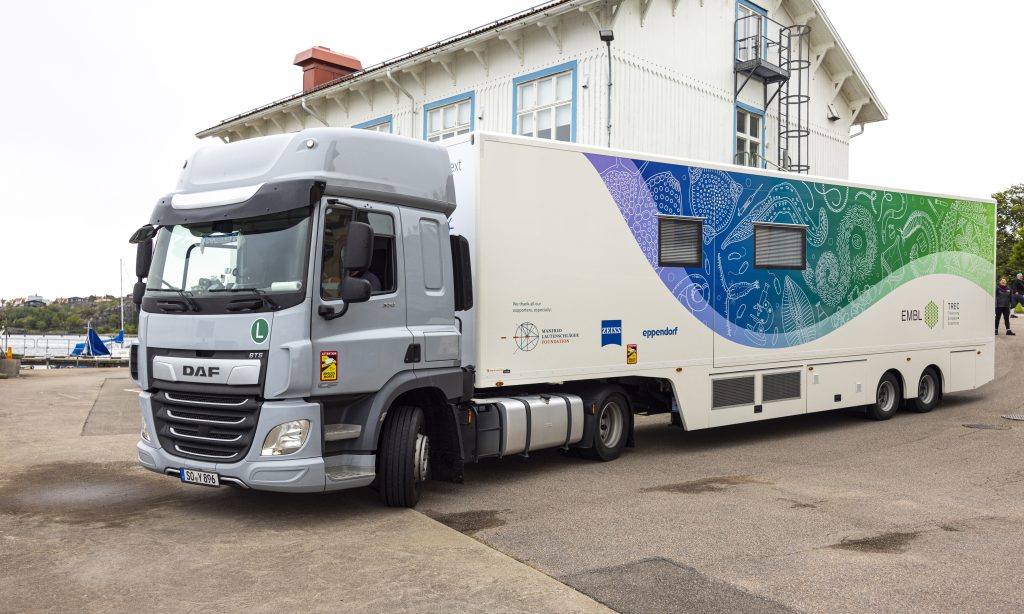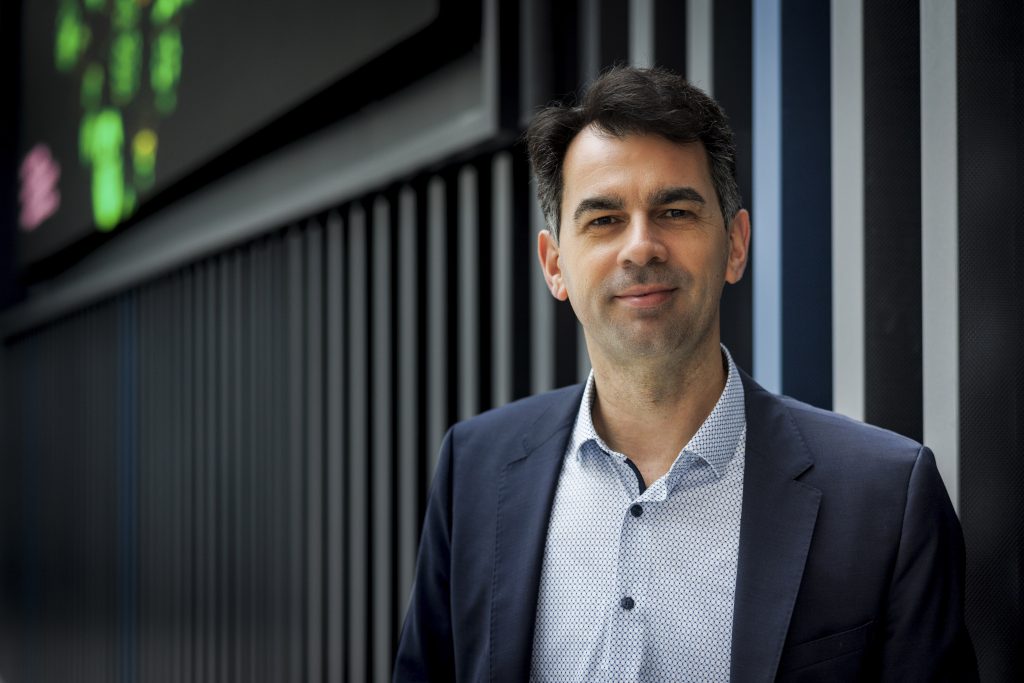
Embracing the genome sequencing revolution
EMBL’s Genomics Core Facility provides end-to-end support to researchers across Europe and beyond and stands at the forefront of scientific breakthroughs.
Issue 101
Developmental biologists have long appreciated the critical importance of when things happen, at what pace, and how they correlate with the major transitional events of development. With progress in theory, imaging technology, and techniques like microfluidics, scientists are now able to study developing systems in a much more dynamic manner – yielding findings that could even be drivers for preventing and treating developmental diseases and disorders. Fundamental research conducted by scientists at EMBL Heidelberg is helping us gain a clearer understanding of living systems and the varied internal and external cues that provoke changes in form, function, and behaviour.


EMBL’s Genomics Core Facility provides end-to-end support to researchers across Europe and beyond and stands at the forefront of scientific breakthroughs.

Promiscuity is critical for nourishment. How? This question lies at the focus of research by the Löw Group at EMBL Hamburg. Using structural biology methods, they explore how specialised molecules located in the cell membrane allow cells absorb nutrients from their environment.

Large language models are changing the way we carry out scientific data curation, annotation, and research, setting the stage for a more efficient understanding of scientific literature

With the new advanced mobile laboratory, EMBL is taking its service offerings to new heights, bringing cutting-edge life science technologies to the field in a way never seen before.

The EMBL agreement, which made reality the idea of creating a European laboratory for life sciences, was signed in 1973 and ratified in 1974. Fifty years later, we look back at this historic moment.

Sara Fahs, who did her PhD from EMBL Heidelberg and is one of the newest members of the EMBL alumni association board, writes about key insights from her journey in science and her work on medicinal chemistry, during a career spanning academia and industry.

Baubak Bajoghli, Director of Austrian Bioimaging/CMI, discusses his passion for imaging and his work straddling basic and applied research in biology.

The work and excellence of EMBL researchers have been recognised with multiple awards and honours during the past six months.
Click here to download a quick overview of all the articles included in this digital issue of EMBLetc.
Looking for past editions of EMBLetc.? Browse our archive, going back 20 years.